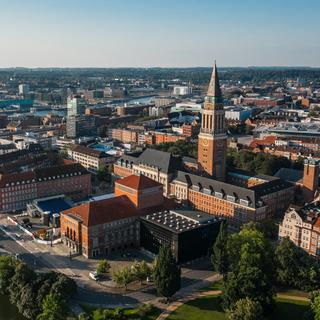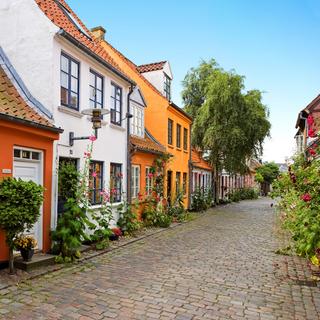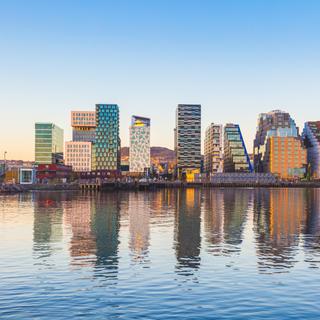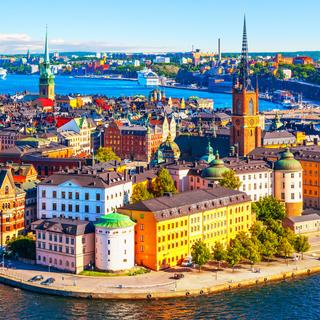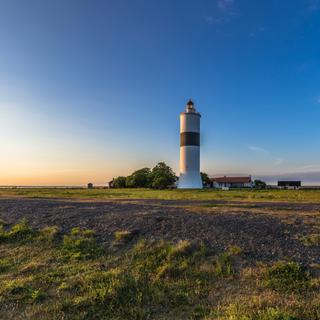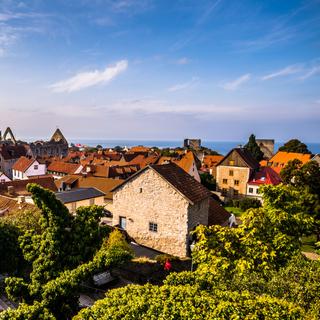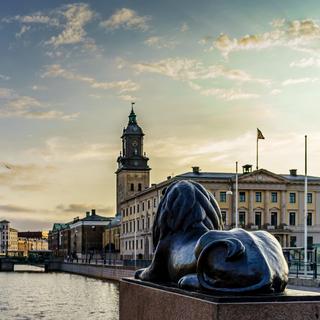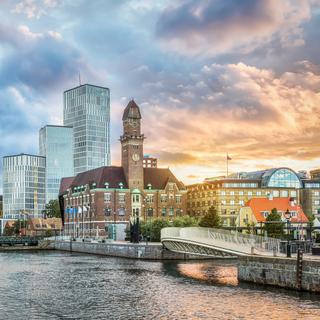
Halmstad weather and climate in 2025

Halmstad weather and climate in 2025
Day
21 °C
Night
14 °C
Sea
18 °C
Precipitation
81 mm
in month
Rainy days
11 days
in month
Daylight
17 hours
average
Sunshine
7 hours
average
Humidity
76 %
Weather charts for Halmstad

Find more destinations like this
Destinations with similar weather to Halmstad
Other destinations in South Sweden
Closest cities for Halmstad
Weather overview for Halmstad
Weather overview
Halmstad, located in Sweden, experiences a temperate maritime climate, generally characterized by its mild weather patterns. The climatic conditions fluctuate modestly, with daytime temperatures varying from an average low of 3 °C (37 °F) in the crisp winter month of December to a pleasantly warm average high of 21 °C (69 °F) during the peak of summer in July. Nighttime temperatures reach their zenith in July, averaging 14 °C (56 °F), whereas the chilliest nights are in February, averaging -4 °C (25 °F). Among the months, April is distinguished by the fewest days of rainfall, having only 8 days of precipitation, while the month with the most precipitation is typically December, with rain expected on approximately 13 days of the month.
January weather
As January commences, the nocturnal temperatures in Halmstad progressively decline to an average of -4 °C (25 °F). A noticeable decrease in the volume of rainfall is evidenced by its drop to 66 mm (2.59 in), and a similar trend is seen in the number of rainy days. The duration of sunshine is at its nadir, registering a meager 1 hour on the daily average, while peak wind speeds are observed to reach 5 m/s.
February weather
February sees a continuation of declining night temperatures, reaching a low of -4 °C (25 °F) in Halmstad. A gradual reduction in rainy days to 10 days complements the observed trend, alongside a contracting figure for rainfall at 49 mm (1.93 in). An upward trajectory in the amount of sunlight is also noticeable during this month.
March weather
March heralds a shift towards warmer conditions in Halmstad with daily temperatures rising, and a concurrent uptick in nighttime warmth. Rainy days continue their retreat to about 10 days of the month. The increasing presence of the sun is evident with 3 hours of cloudless skies.
April weather
The ascent of day temperatures continues through April in Halmstad, averaging 10 °C (51 °F), alongside a gradual increase in night temperatures to 3 °C (37 °F). The fewest number of rainy days occurs in April, suggesting a relatively dry period with only 8 days, and the recorded rainfall hits a low of 39 mm (1.54 in). An upward trend in sunshine is also noted.
May weather
In May, there is a similar pattern of increasing temperatures, with daytime warmth reaching 16 °C (60 °F), and nighttime temperatures averaging 8 °C (46 °F). A slight increase in the number of rainy days begins to emerge. The continued rise in the hours of sunshine is welcomed, now averaging 7 hours.
June weather
The onset of the tourist season in June is marked by a noticeable upsurge in daytime temperatures, paralleling a rise in night temperatures as well, which average 11 °C (52 °F). An increase in rainfall to 71 mm (2.80 in) is seen, and the day brings the zenith of sunshine hours, peaking at 8 hours.
July weather
Tourism continues through July with the highest daytime temperatures of the year, and the peak in night temperatures is also observed. Rainfall is on an upwards trend, similar to the previous month, reaching 81 mm (3.19 in), and the winds slow to their gentlest pace at 4 m/s.
August weather
As August arrives, a slight decrease in daytime temperatures is perceived, accompanied by the start of a nightly cooldown to 13 °C (55 °F). Rainy days are more frequent, and the highest rainfall of the year is recorded during this month.
September weather
September sees a continuation of the downward trend in day temperatures, averaging 16 °C (60 °F) in Halmstad, and nights cool down as well. The amount of rainfall begins to decrease, and rainy days drop to 12 days. The diminishing sunlight, now at 5 hours, ushers in the autumn season.
October weather
Continuous cooling trends mark October in Halmstad, with both day and night temperatures on the decline. The onset of rainier days becomes evident, and reduced hours of sunshine also characterize this month.
November weather
As winter approaches in November, temperatures continue to fall, and nights grow even colder. A decrease in rainfall is noticeable, yet the number of sunshine hours is on a sharp descent.
December weather
December in Halmstad showcases the coolest daytime temperatures and ensuing night chills. Rainy days hit their peak, coinciding with the least amount of sunshine throughout the year and the shortest days.
FAQs
What kind of temperatures can I anticipate during nights in January?
In the dark hours of January, the mercury commonly plummets to approximately -4 °C (25 °F).
What is the duration of daylight in Halmstad during February?
Daylight in Halmstad stretches for about 9 hours during the month of February.
With spring approaching, how does the level of precipitation change in March?
As spring sets in, Halmstad typically experiences decreased rainfall, registering an average of 51 mm (2.01 in) for the month.
Is April an ideal time to enjoy outdoor activities in Halmstad given the amount of rainfall?
April's reduced precipitation, amounting to just 39 mm (1.54 in), makes it a favourable month for outdoor activities in Halmstad.
How does the wind speed in Halmstad during May affect outdoor pursuits?
With an average wind speed of 4 m/s in May, conditions in Halmstad are generally well-suited for most outdoor activities.
What changes in humidity can tourists expect during their visit to Halmstad in June?
June visitors to Halmstad can anticipate moderate humidity levels, around 74 %, providing a comfortable atmosphere for tourism.
Considering July's weather, is it a good time for beach activities in Halmstad?
With July boasting the warmest sea temperature of the year at 18 °C (64 °F), it's an excellent time for beachgoers in Halmstad.
Does August in Halmstad present suitable conditions for sunbathing and swimming?
August in Halmstad offers ample sun with 7 hours of cloudless skies and a warm sea temperature averaging 18 °C (64 °F), ideal for beach activities.
As autumn arrives, what should visitors expect during their stay in Halmstad in September?
Visitors in September will find daylight shortening to around 13 hours, with a noticeable decrease in temperatures and rainfall.
What is the autumnal weather like in Halmstad during the month of October?
October's weather in Halmstad is distinctly autumnal, with brief daylight lasting 10 hours and a bracing sea temperature of 11 °C (52 °F).
How does the approach of winter impact daylight and temperatures in Halmstad during November?
With the approach of winter, Halmstad sees limited daylight hours totalling 8 hours and a drop in both day and night temperatures.
What weather can one typically expect in Halmstad during the festive month of December?
December often ushers in Halmstad's coolest climate, with scarce sunshine averaging 1 hour, extended precipitation, and very short days, barely spanning 7 hours.
